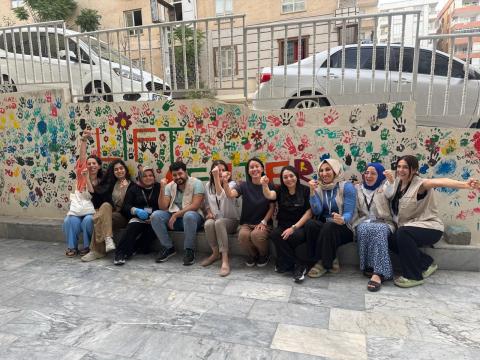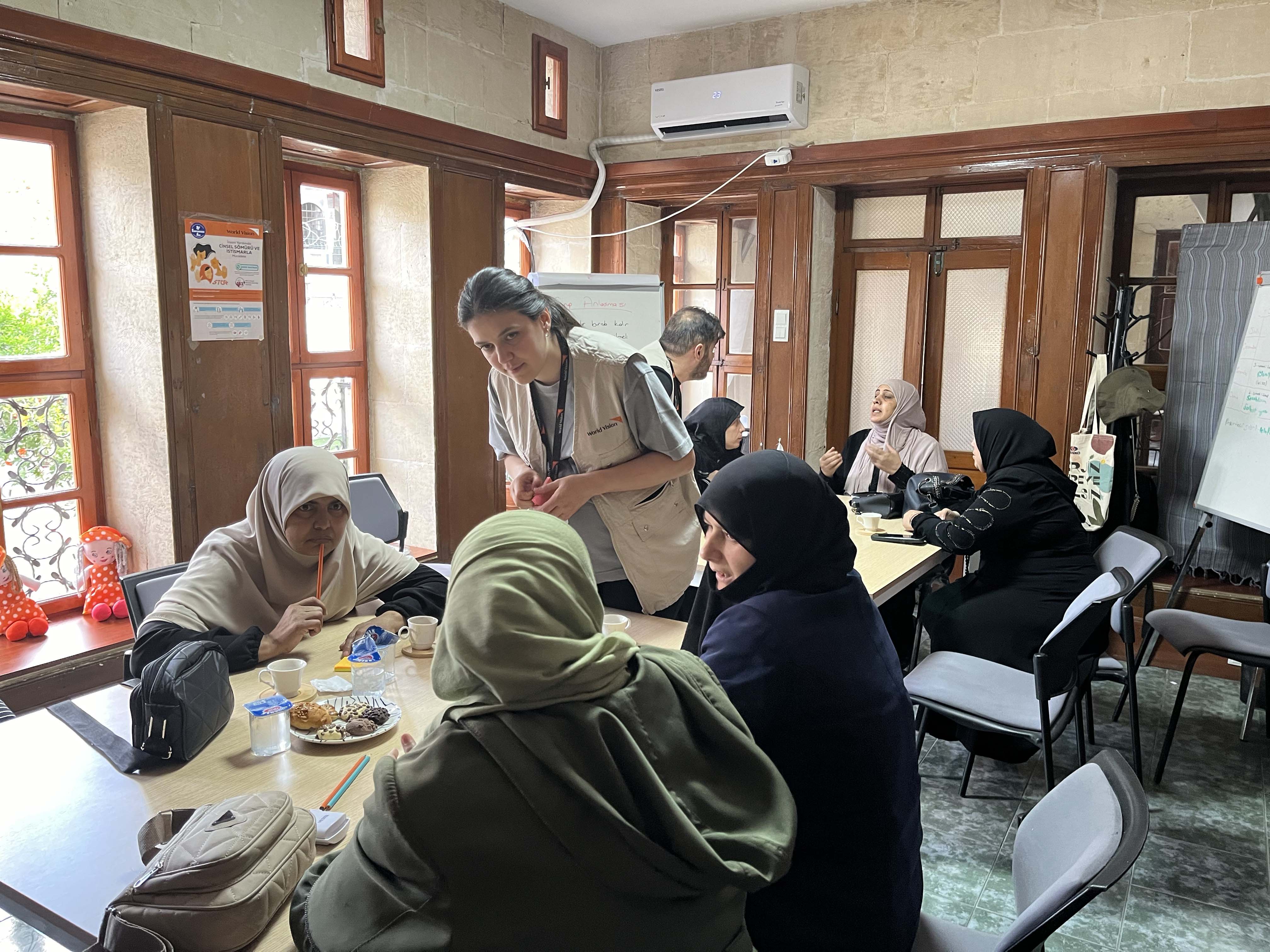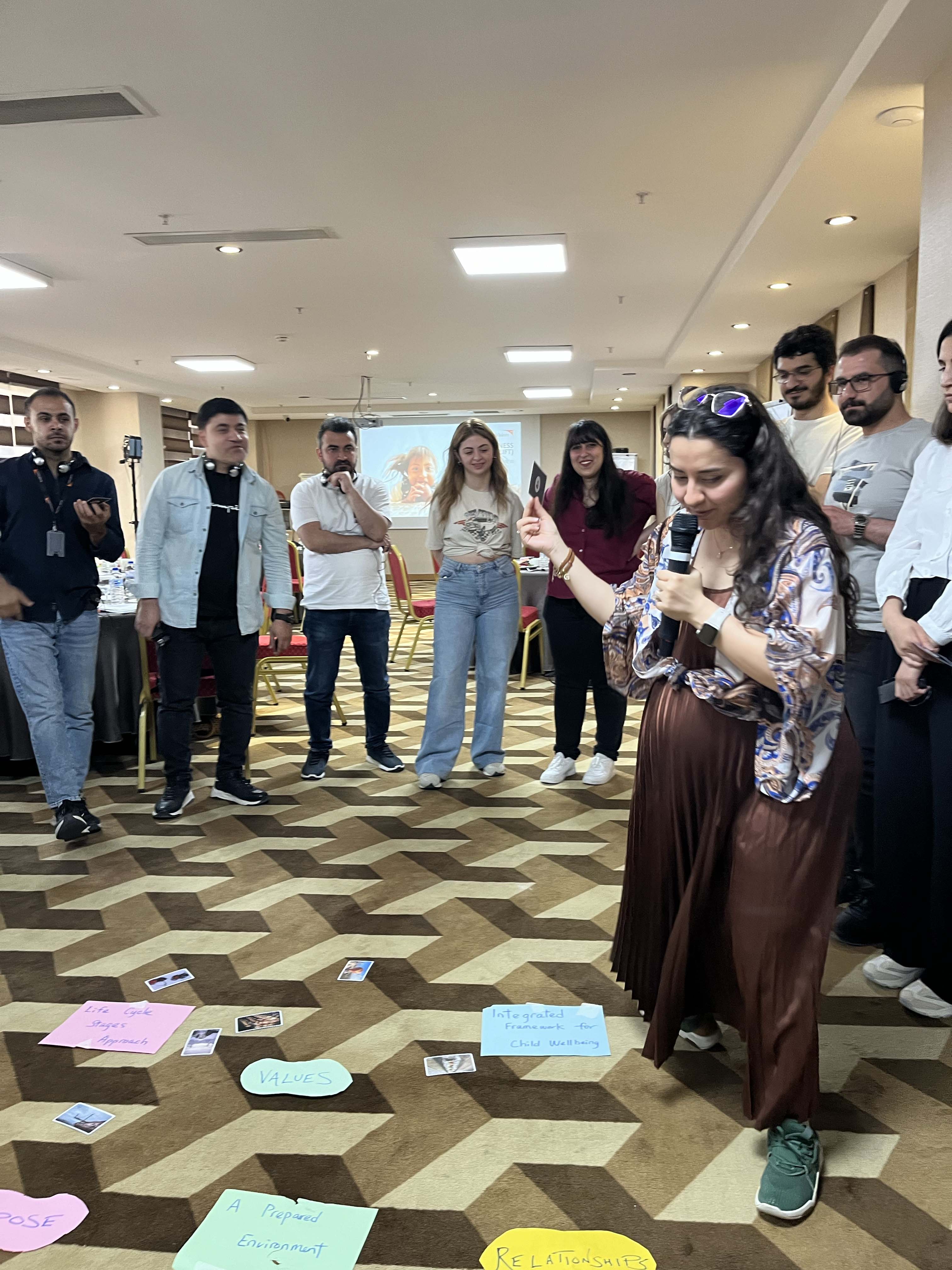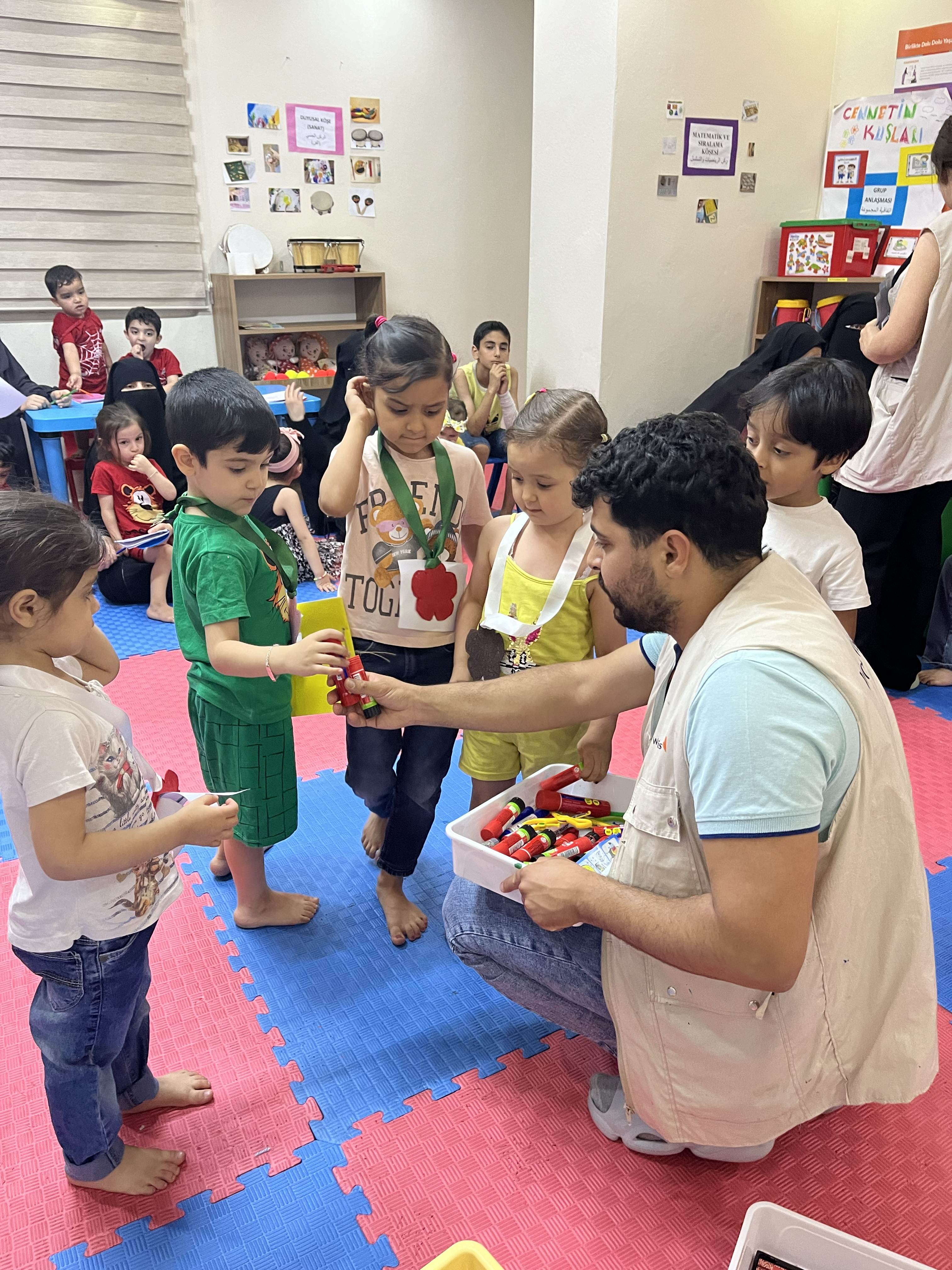From Training to Transformation: How LIFT is Redefining Child Wellbeing in Humanitarian Settings

Joy Cheung, Senior Adviser, Child Protection in Humanitarian Action, reflects on the need to rethink how we train staff to implement projects like Life in Fullness Together (LIFT), which is reshaping humanitarian approaches to child protection, education, and psychosocial support. She also highlights that transformative, impact on both local and refugee communities in fragile contexts is possible, but this takes time and intentional investment.
In my work across humanitarian settings, I witnessed how the systems meant to protect children are under immense strain. With global protection funding—including child protection—facing average shortfalls of 67% across major crises, the consequences are stark: fewer services that save lives, fewer trained staff, and fewer opportunities for children to recover, learn, and thrive. As investment in protection continues to shrink, it’s children who pay the highest price.
I believe everyone deserves a life in fullness, where they have the opportunities, support, and freedom to thrive, even in the face of adversity. This belief drives my passion for approaches that nurture the development and well-being of children at every stage of life. Our new initiative, LIFT, is born from that vision. While LIFT offers centre-based activities, it is more than just a physical space. It is a transformative environment where children, adolescents, and caregivers discover their purpose and take charge of their growth.
A Centre That Feels Different
On a very hot, sunny day in Sanliurfa, a city located near the Syrian border in south-eastern Türkiye and home to more than 200,000 Syrian refugees, I visited one of the centres operated by our child wellbeing team. I witnessed the vibrant energy of daily programming. After an activity with young children and their caregivers, two mothers approached me and said, “This is not like the other centres,” one said, clutching my hand. “I like the facilitators here. My child loves the activities and always asks when the next session is and why can’t we come to the centre every day.” Across from me, I saw the two child wellbeing facilitators standing with quiet confidence and proud smiles. I knew something had shifted.
Walking to the next door, I found adolescents in the middle of a session on friendship. I introduced myself and shared that Türkiye was the first place we piloted the LIFT approach. A Syrian teenage girl leaned forward, her eyes lit up, and said, “Our facilitators told us this. We feel very proud to be the first LIFT group set up by World Vision. When I return to Syria one day, I want to bring LIFT to my friends.

Rethinking How We Learn
In May 2025, I returned to Türkiye for a second training session for the LIFT child wellbeing team. It felt like stepping into a story mid-chapter. Familiar faces greeted me, but this time there was fresh ambition and a shared commitment to doing more for vulnerable children and caregivers. Unlike the previous year when we introduced the project concept and tools, this visit was about building on what we have learned, deepening facilitation and critical thinking skills, and preparing for the next phase of the LIFT pilot project.
Delivering training in the humanitarian sector is never as simple as passing on information. We have all seen trainers reading from text-heavy slides; with participants disengaged, sitting in the room with glazed-over eyes; some constantly on their phones waiting for the sessions to end. Certificates are handed out more to recognise attendance than actual learning. Even donors have questioned the effectiveness of efforts to build skills and support teams in humanitarian programmes.
From Passive Learners to Co-Creators
Having facilitated nearly a hundred training sessions in my 18-year career as a child protection specialist, I constantly remind myself that learning has to feel alive. Every session presents a challenge to move beyond standard lectures and craft experiences that resonate deeply, empowering local teams to lead with confidence.
On the first day of training, I met with participants whose faces showed great excitement and curiosity. Their transformation was evident. Team members no longer asked me about the curricula, the reporting templates, and the number of activities they needed to organise, as they did in the first orientation training. This time, their focus was on the methods to support deep conversations with adolescents and caregivers on sensitive topics. They asked about ways to motivate participants to become peer educators and proposed innovative ideas to tackle recurring challenges. They have transformed from ‘traditional’ humanitarian workers who implement standard curricula and follow checklists into passionate changemakers, showing care and commitment to build relationships and reimagining how we create lasting changes in crisis contexts.

Training Beyond the Classroom Walls
A powerful addition to this second workshop with the Türkiye child wellbeing team was the practice of reflection and feedback. We reminded the participants that LIFT is not just about delivering activities, but it is a journey with the children and caregivers to discover purposes, unlearn old practices, and apply new knowledge in real life. Watching the staff take ownership of the skills, slowly gaining confidence as they led activities and demonstrated their evolving understanding of the LIFT concept, was truly transformative. Over the course of four days of the workshop, the child wellbeing team went beyond simply receiving information; they bridged theory with practice and advanced the concepts by contributing their creative ideas and insights.
The training room was only part of the story. Before the workshop, we had invested in weekly follow-ups, coaching, and structured hands-on learning. In just a few days of the workshop and field visits, that consistent investment paid off as I saw changes in the attitudes, relationships and ways of working within the team. This was not the result of a standard or one-off training; it was the outcome of building something together with intention, with a mindset to challenge business as usual, and a commitment to continuous investing in people..

Planting Seeds of Change
It is essential to recognise that genuine growth and change originate from within. We cannot expect a shift in attitudes and behaviours through quick fixes or a one-size-fits-all training package. As a mentor and trainer, I view my role as that of a gardener, planting seeds of new ideas and providing the essential nutrients of trust, support, and encouragement. Our job is to spark internal drive within teams so those seeds can take root and bloom. When people see their development as an evolving journey rather than a fixed destination, skills and capabilities become more resilient, relevant and sustainable.
In today’s dynamic humanitarian and development landscape, capacity building must extend far beyond the confines of training rooms and PowerPoint presentations. Learning is not a one-off event—it’s a continuous, adaptive process shaped by real-world challenges and collective growth.
This World Humanitarian Day, I invite others in the humanitarian sector to rethink how we help teams to grow, not just through training, but through transformation and a sense of purpose. LIFT is more than a project; It’s proof that change is possible when we believe in people and work together to make it happen.